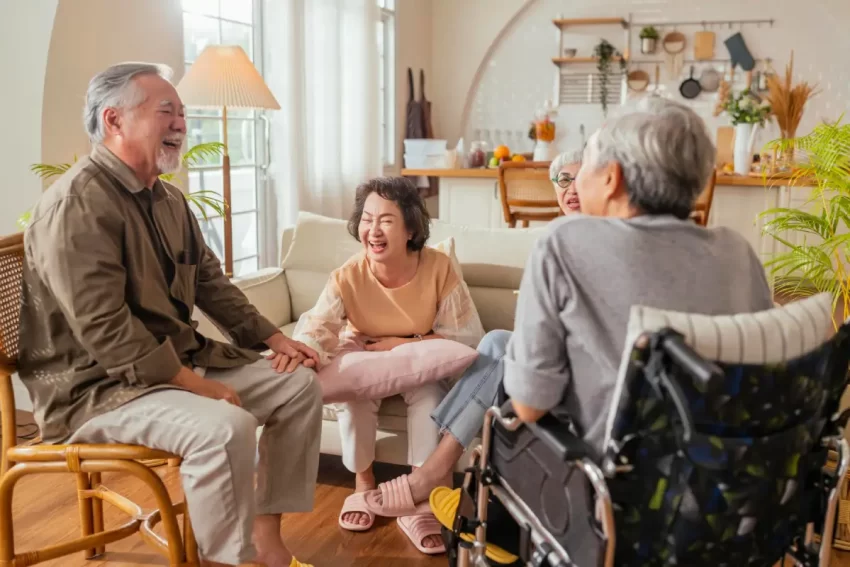As individuals enter their golden years, staying connected with others gains renewed importance. Social relationships among seniors extend far beyond simple companionship—they become a cornerstone of physical health, emotional resilience, and overall life satisfaction. For those seeking vibrant social environments in their later years, options like senior living Bergen County are designed to help seniors foster meaningful connections in a supportive setting.
Research shows that friendships, family ties, and community activity significantly impact senior health. Engaging in these activities increases happiness, improves quality of life, and prolongs longevity. Social networks can prevent stress, illness, and psychological decline. Modern senior communities prioritize connectivity, offering group events and activities to encourage healthy socializing and participation.
Physical Health Benefits
Social connectedness has a proven impact on seniors’ physical health. Research from the National Institutes of Health reveals that seniors who maintain strong social ties have a 50% higher likelihood of survival than those who are socially isolated.
These relationships foster positive habits, such as increased physical activity, adherence to medication schedules, and nutritious eating, all essential for sustaining mobility and minimizing frailty. In group settings, seniors are often motivated to engage in regular exercise and wellness routines, further strengthening their physical resilience.
Mental Health Advantages
Mental health is deeply intertwined with the quality and quantity of social interactions. Relationships with friends, family, and neighbors help ward off feelings of loneliness, a leading predictor of depression among older adults. Seniors with robust social networks reported lower rates of depressive symptoms and significantly higher self-esteem. Regular socialization uplifts mood, reduces the risk of anxiety, and fosters emotional stability through supportive and positive exchanges.
Cognitive Function Improvement
The benefits of social connections extend to brain health. Frequent social activity—whether through conversation, games, or group outings—stimulates cognitive processes including memory, attention, and executive functions. Studies suggest that seniors maintaining active social lives may reduce the risk of cognitive decline and dementia by up to 70%. Social interaction encourages constant mental engagement, challenges the mind, and has even been linked to slower progression of Alzheimer’s and other forms of dementia.
Community Engagement
Belonging to a community enhances well-being by providing a supportive network and opportunities for positive experiences. Activities like community centers, clubs, and interest groups foster new friendships and rekindle old ones. Social events and volunteering provide opportunities for seniors to connect, share skills, and explore new interests.
Technology and Social Connections
Digital communication tools have revolutionized seniors’ lives by allowing them to stay connected, maintain relationships, and participate in virtual workshops and online communities. When used correctly, these tools can help seniors stay updated on family news, meet new friends, and pursue enriching interests online. However, digital literacy and privacy awareness are essential for safe and enjoyable online participation.
Overcoming Barriers to Socialization
Despite its importance, many seniors encounter obstacles like health limitations, transportation challenges, or distance from family. Tackling these barriers begins with seeking accessible resources—community transportation, in-home service programs, and virtual meetups.
Many senior living communities coordinate meal programs and local restaurants to combine nutrition support with social interaction, combating isolation and enhancing wellness. Family members and caregivers can play a proactive role by helping identify and facilitate these opportunities, ensuring seniors are supported in their efforts to stay socially engaged.
Conclusion
Social connectedness is more than just a pleasant addition to a senior’s life—it’s a powerful driver of physical health, mental well-being, and cognitive vitality. By engaging with others, seniors strengthen their bodies, protect their minds, and cultivate a sense of belonging that enhances quality of life.
Whether through in-person gatherings, community involvement, or digital connections, the opportunities to maintain meaningful relationships are more accessible than ever. Overcoming barriers to socialization is essential, and with support from families, caregivers, and communities, seniors can thrive well into their later years—living not just longer, but better.

